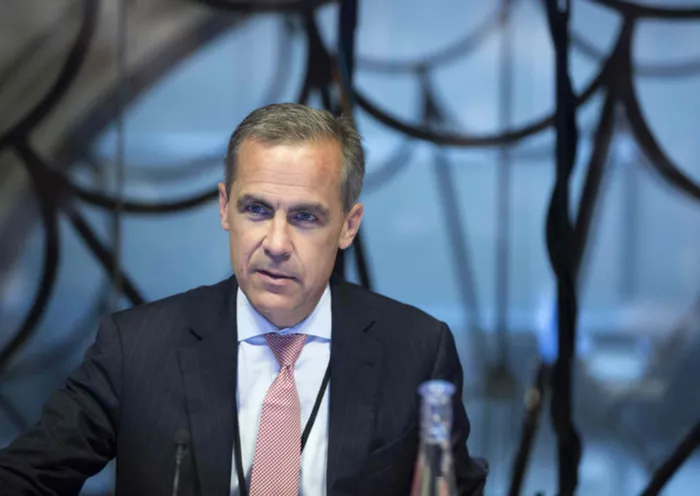Carney's BoE set to join forward guidance club

Mark Carney, the governor of the Bank of England, attends a monetary policy committee (MPC) briefing on his first day at the central bank's headquarters in London. Mark Carney, the governor of the Bank of England, attends a monetary policy committee (MPC) briefing on his first day at the central bank's headquarters in London.
London - Mark Carney faces his first big test as Bank of England governor on Wednesday when the central bank spells out how it will try to stop higher borrowing costs from snuffing out Britain's economic recovery.
Carney and his fellow policymakers are likely to back the idea of giving a clearer picture of how long the BoE will keep its interest rates at their rock-bottom levels.
A growing number of major central banks are providing such forward guidance to help nurse their economies back to health after the damage of the financial crisis.
“The recovery could quickly lose steam if mortgage rates rise, so the BoE's job now is to use guidance to ensure that the stimulus is not withdrawn prematurely,” said Rob Wood, a former BoE economist who now works for Berenberg bank.
The BoE will publish its views on the merits of forward guidance, as sought by finance minister George Osborne, alongside its quarterly economic forecasts at 09h30 GMT. The announcement will be followed by Carney's first news conference since taking over as governor on July 1.
As central bank chief in his native Canada in 2009, he took what was then the unusual step of committing to putting interest rates on ice for more than a year during the worst of the crisis.
The task looks a lot more complicated in London.
Some top officials at the BoE have previously voiced concern about tying their hands on monetary policy.
And a string of much stronger-than-expected data suggests that Britain's recovery is already building some momentum.
Yet the economy remains more than 3 percent smaller than before the financial crisis - unlike the United States and Germany which have bounced bank more quickly - and Carney will want to prevent any new drag from higher borrowing costs.
British government debt yields are at their highest in a month after the strong data and a rise in US market rates.
Carney was named to run the BoE last November by Osborne who wants “monetary activism” to offset his fiscal austerity push.
Since then, the BoE's focus has moved from resuscitating the economy to assisting its recovery, and Wednesday's announcement will reflect that, said Barclays economist Simon Hayes.
“This may not constitute the 'shock and awe' monetary activism that came to be expected from Governor Carney when he was first appointed, but the improved economic circumstances have reduced the need for emergency support,” he said.
Carney has previously stressed the importance of reassuring ordinary people and businesses that their debt costs are not going to rise any time soon in order to give them more confidence about spending which would help the economy.
Financial markets are already pricing in no BoE hike until late 2015 at the earliest.
But with some members of the BoE's Monetary Policy Committee worried that their inflation-fighting credibility could be at risk, setting a clear time period for keeping interest rates low is considered an outside option by many economists.
The BoE is more likely to say it will keep interest rates unchanged until unemployment falls to a specific level, or inflation expectations rise above 2.5 percent, for example, similar to the US Federal Reserve's forward guidance.
More radical options include targeting a level of economic output or growth in earnings before considering a rate hike.
As well as keeping interest rates low, the BoE has pumped the equivalent of a quarter of Britain's annual economic output into financial markets since 2009 by buying government bonds with newly created money.
But that option is on the back burner, at least for now. - Reuters